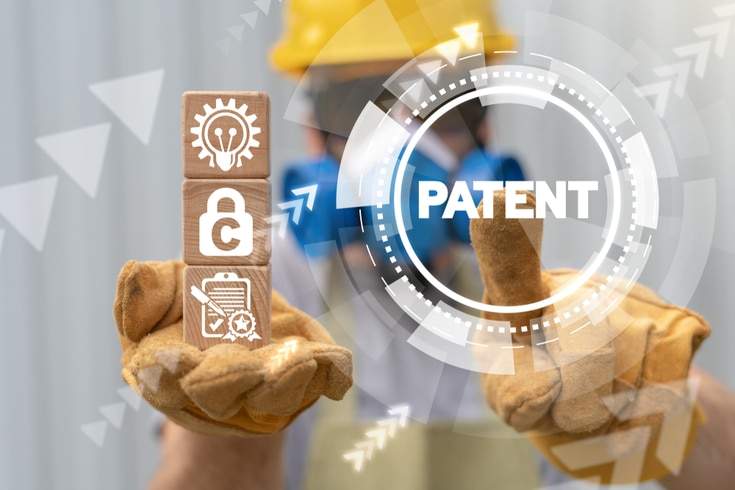What is the Share Purchase Clause in Investment Contracts?

In investment contracts, there may be a provision called a share buyback clause. There are many factors to consider regarding the share buyback clause, such as when it should be stipulated and what its content should be. Therefore, in this article, we will explain the share buyback clause in investment contracts.
https://monolith.law/corporate/importance-and-necessity-of-investment-contract[ja]
What is a Share Repurchase Clause?
A share repurchase clause is a provision that allows investors, such as venture capitalists (VCs), to demand the company or its management to buy back the shares they own under certain circumstances. For instance, in an investment agreement, there may be a clause stipulating that if the company or its management violates the terms of the agreement, investors like VCs can demand the company or its management to repurchase their shares.
Purpose of the Share Buyback Clause

So, what is the purpose of including a share buyback clause in an investment agreement? A share buyback clause is a provision that allows investors, such as venture capitalists (VCs), to request the company or its management to buy back the shares they own. This clause is beneficial for investors like VCs. Therefore, they often propose to include this clause in the investment agreement.
The main purposes of establishing a share buyback clause can be considered as follows:
- To impose a form of sanction on the company or its management that has violated the investment agreement
- To ensure that investors like VCs have the opportunity to recover their invested capital
- To ensure that investors like VCs have the opportunity to sever ties with the company
To impose a form of sanction on the company or its management that has violated the investment agreement
Firstly, one of the purposes of including a share buyback clause in an investment agreement is to impose a form of sanction on the company or its management that has violated the investment agreement.
If the company or its management violates the investment agreement, they may be held accountable as stipulated in the investment agreement or as legally permissible. These accountability measures typically involve claims for damages. However, claiming damages requires identifying the specific actions of the company or its management, proving the damage and causality, which makes the claim process challenging. Therefore, a share buyback clause may be included in the investment agreement with the purpose of imposing a form of sanction.
When a share buyback clause is included, if the company or its management violates the investment agreement, the investors like VCs can request a share buyback. The company or its management will then be compelled to buy back the shares. This can deter the company or its management from violating the investment agreement to avoid a share buyback from the investors like VCs.
To ensure that investors like VCs have the opportunity to recover their invested capital
When a share buyback clause is included, investors like VCs can sell their shares to the company or its management, allowing them to recover their invested capital when necessary. Investors like VCs bear the risk of not being able to recover their invested capital when they subscribe to shares. However, it is considered unnecessary for them to bear the risk of the company or its management committing an unfair act such as violating the investment agreement.
Therefore, a share buyback clause may be included in the investment agreement to ensure that investors like VCs have the opportunity to recover their invested capital.
To ensure that investors like VCs have the opportunity to sever ties with the company
In cases where the company or its management violates the investment agreement, investors like VCs may want to sever ties with the company. If the company’s shares are publicly traded, it is relatively easy to sell the shares and sever ties with the company. However, if the shares are not publicly traded, it is not easy to sever ties with the company.
Therefore, by including a share buyback clause in the investment agreement, if the company or its management violates the investment agreement, investors like VCs can request the company or its management to buy back their shares, ensuring they have the opportunity to sever ties with the company.
Triggering Conditions for Share Buyback Clauses

Share buyback clauses are stipulated in a way that allows the company and its management to invoke them in the event of a breach of the investment contract. The triggering conditions for share buyback clauses vary on a case-by-case basis, but we will introduce some of the most common reasons stipulated in investment contracts below.
- Breach of Representation and Warranty Clauses
- Breach of Disclosure Clauses
- Failure of a venture company or similar corporation to go public
Breach of Representation and Warranty Clauses
A representation and warranty clause is a provision in which one party to a contract represents and warrants certain facts to the other party at a certain point in time, such as at the time of contract execution. These facts may pertain to the contracting party, the contract content, facts related to the contract, or facts related to business activities. If it becomes clear that there are facts contrary to those guaranteed by the representation and warranty clause, the trust relationship between the VC or other investors and the company and its management is usually lost. In such cases, investors often want to sever their relationship with the company. To prepare for such situations, it is considered to include a provision in the investment contract that allows for a share buyback request in the event of a breach of the representation and warranty clause.
However, among the facts guaranteed by the representation and warranty, there may be a mix of important facts and less important ones. In such cases, it may be considered to stipulate that a share buyback request is only allowed in the event of a breach of the representation and warranty regarding important facts.
https://monolith.law/corporate/representations-and-warranties-of-investment-contract[ja]
Breach of Disclosure Clauses
A disclosure clause is a provision that stipulates that the company must disclose certain information to the VC or other investors. If the company or its management does not disclose information to the VC or other investors despite it being stipulated in the disclosure clause, it is considered to establish a provision that allows for a share buyback request.
If the company or its management does not properly disclose information, it becomes difficult for the VC or other investors to maintain a trust relationship with the company. Therefore, it is beneficial to stipulate a breach of the disclosure clause as a triggering condition for a share buyback request to prepare for such cases.
However, among the information to be disclosed, there may be a mix of important information and less important ones. In such cases, it may be considered to stipulate that a share buyback request is only allowed in the event of a breach of the disclosure obligation regarding important information.
Failure of a Venture Company or Similar Corporation to Go Public
In an investment contract, there may be a clause stipulating an obligation for a corporation to go public under certain conditions. Many VCs and other investors aim for an exit through a stock listing, and if a venture company or similar corporation does not go public, they will not be able to obtain the expected profits. Therefore, it is considered to stipulate a clause that allows the VC or other investors to request a share buyback if the venture company or similar corporation does not go public.
In this case, it is not enough to just allow the VC or other investors to recover their invested capital. It is desirable to determine the share buyback price assuming the case where the shares are listed.
https://monolith.law/corporate/exit-by-ipo-m-and-a[ja]
Example of Share Buyback Clause

For example, a share buyback clause may look like the following:
Article ○ (Share Buyback Clause)
1. ○○ Corporation (hereinafter referred to as “Party B”) and its representative director ○○ (hereinafter referred to as “Party C”) shall, within the scope permitted by law, upon the occurrence of the following events, buy back the shares (hereinafter referred to as “Securities Subject to Buyback”) held by the shareholder (hereinafter referred to as “Party A”) at Party A’s request, and pay the buyback price to Party A by the method designated by Party A within ○○ days after receiving such request.
The buyback price of the Securities Subject to Buyback in such case shall be based on the per share net asset value of Party B based on the net book value of assets on the most recent audited balance sheet of Party B. If there is a dispute over the buyback price, a certified public accountant nominated by Party A shall determine it based on the above standard. Party B and Party C, who are obligated to buy back at the request of Party A, shall bear and pay the remuneration and expenses of such certified public accountant.
(1) When Party B or Party C fails to perform its obligations under this Agreement and such breach is not remedied within ○○ days after receipt of a notice of breach addressed to the breaching party by Party A (a copy of which shall also be sent to the other parties), or when such breach is irreparable
(2) If any of the documents or information provided by Party B to Party A in connection with the execution of this Agreement was inaccurate or insufficient with respect to material facts as of the time of execution of the Agreement or the payment due date
(3) If any of the documents or information provided by Party B to Party A under Article ○ was inaccurate or insufficient with respect to material facts at the time of its delivery or provision
(4) If there is a significant change in the control, management, or shareholder composition of Party B or Party C, or in the basic management policy of the issuing company, without the prior consent of Party A
2. Notwithstanding that Party B meets the requirements for listing or over-the-counter registration in terms of its financial condition and business performance, if Party B does not list or register over-the-counter, Party B and Party C shall, within the scope permitted by law, buy back the shares (hereinafter referred to as “Securities Subject to Buyback”) held by Party A at Party A’s request, and pay the buyback price to Party A by the method designated by Party A within ○○ days after receiving such request. The buyback price of the Securities Subject to Buyback in such case shall be determined by agreement among the relevant parties based on the initial per share price that would have been established if Party A’s shares had been publicly offered on a stock exchange that meets the listing requirements or an over-the-counter market that meets the registration requirements in terms of financial condition and business performance. If such agreement is not reached within ○○ days, the buyback price shall be determined by a securities company with a license for underwriting business nominated by an investor with no interest in the parties to this Agreement based on the above standard. In this case, the period of ○○ days, which is the payment deadline for the buyback price under this paragraph, shall be extended to ○○○ days. Party B and Party C, who are obligated to buy back at the request of Party A, shall bear and pay the remuneration and expenses of such securities company.
Party B and Party C shall take all necessary measures for the implementation of the transfer, including change of name, in respect of all buybacks and other transfers under this Article.
Summary
We have discussed the share buyback clause in investment contracts. When venture companies negotiate investment contracts with venture capitalists (VCs) and similar entities, it is common for these investors to propose including a share buyback clause. To secure investment from VCs, venture companies need to meet their demands. However, to avoid future disadvantages, it is crucial to carefully consider the content of the share buyback clause. Given the specialized knowledge required to examine such clauses, it is advisable to seek advice from legal experts, such as attorneys.





















